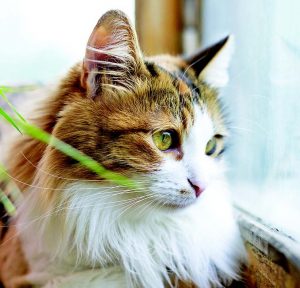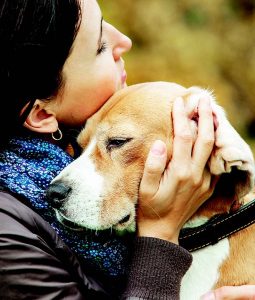Nowadays, people can easily find ways to get support and professional help to manage depression and other mental conditions. But what can you do when the one who has depression is not a human, but an animal?
Sad or Sick?
According to Dr. Mary Rose Magpily, veterinarian and canine behavior consultant at Pet Centrics Philippines, signs of depression in companion animals include lack of interest in activities they usually consider pleasurable. “A companion animal may not be interested in eating anymore despite having a healthy appetite, or they may not be interested in playing with other animals even if they used to love play activities”

Other behaviors hinting at depression include lack of interest in social activities, a noticeable change in sleeping pattern, and easily giving up in stressful situations.
Animal Depression: Fiction?
It’s normal to feel sad once in a while. Depression, on the other hand, is more than sadness — it affects day-to-day life, even increasing the risk for death.
And yes, animals, do get depressed, too!

Humans get diagnosed with depression after a mental health professional asks specific questions about their symptoms. But because animals can’t verbally communicate what they’re feeling or what emotional state they are in, we can’t strictly say that animals have depression exactly like humans do. However, they can show depression-like behavior, which needs to be dealt with before it becomes worse.
Causes of Depression in Companion Animals
Grieving – “Depression in animals usually coincides with or follows a stressful event, such as death of or separation from their favorite humans, and drastic changes in their environment, such as relocation to a new and unfamiliar place.”

Abuse – Long-term exposure to stressful or fear-inducing activities, such as abuse or harsh punishment, may also cause the animal to shut down or exhibit depression-like behaviors.
Solitude – In some cases, lack of stimulating activities (e.g., being kept in a cage and being alone in the house all day) may also result in depression.
Illness – Chemical imbalance, which can be one of the causes of depression in humans, can also cause or even worsen depression in animals. It is usually caused by tumors or abnormalities in the animal’s physiology.

Dr. Magpily confirms that some bird species, such as parrots, may exhibit long-term depression-like behaviors, but it is still uncertain if dogs and cats can also have long-term depression. Dogs’ depression-like behaviors usually pass and they recover after some time, especially if exposed to healthy, stimulating activities — sometimes alongside medication.
Treat It to Beat It
It’s clear that depressive behavior in animals can be detrimental to their overall health when not treated sooner. Some animals even show suicidal tendencies, such as sea animals in confinement bashing their heads on the walls of their tanks repeatedly until they bleed, or dogs starving themselves to death when their loved ones die.

Experts are still unsure if the animals showing depressive behaviors — or, worse, suicidal tendencies — truly intend to end their lives, or if they just have unhealthy ways to cope. However, not helping them would surely increase their risk for death.
Prevention is Better than Cure
While it’s important to treat your companion animal’s illnesses, prevention is of course better.
“We should always make sure that our companion animal has regular mental and physical stimulation because those who lack stimulation usually succumb to stress and depression-like symptoms. Daily walks, training, games, and other forms of healthy stimulation should be a part of your regular routine with your companion animal. In addition, social animals like dogs would benefit from regular human and animal interaction.”

If a major change in the animal’s environment or regular routine is inevitable, Dr. Magpily advises adequate preparation for the impending change. “If an animal has bonded with their foster parent but is to be adopted soon, then it’s best to encourage them to form a bond with their new human companion before they leave their foster parent.”
In unpredictable situations, such as the death of a human, it is best to keep the companion animal physically and mentally preoccupied while continuing their daily routine.
Animals are here with us, not for us; like humans, animals also have the right to live their lives to the fullest, which means having the right to get help if they struggle with their health, mental or otherwise.
This appeared in Animal Scene magazine’s October 2018 issue.






